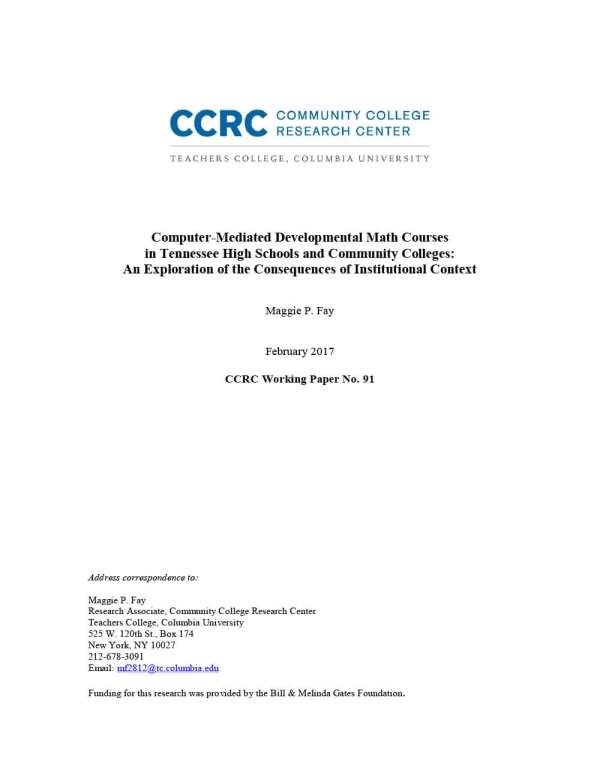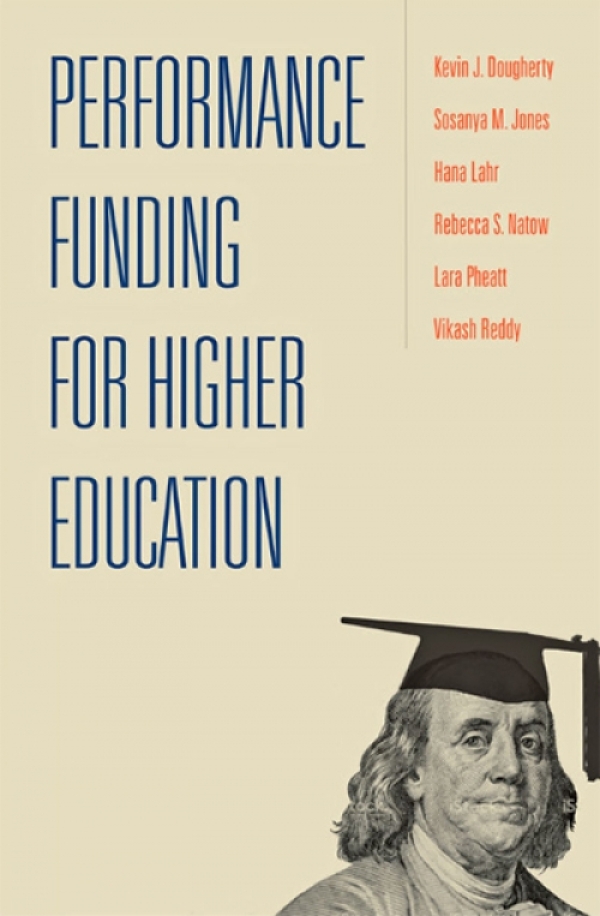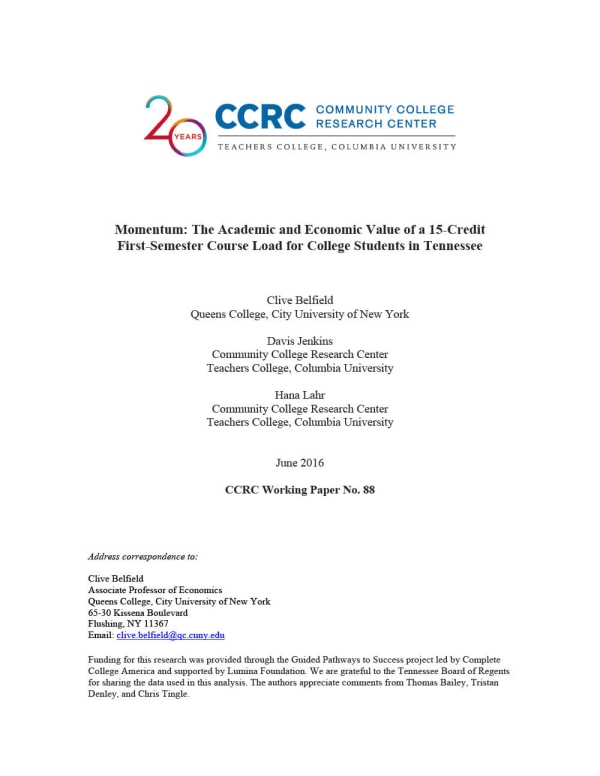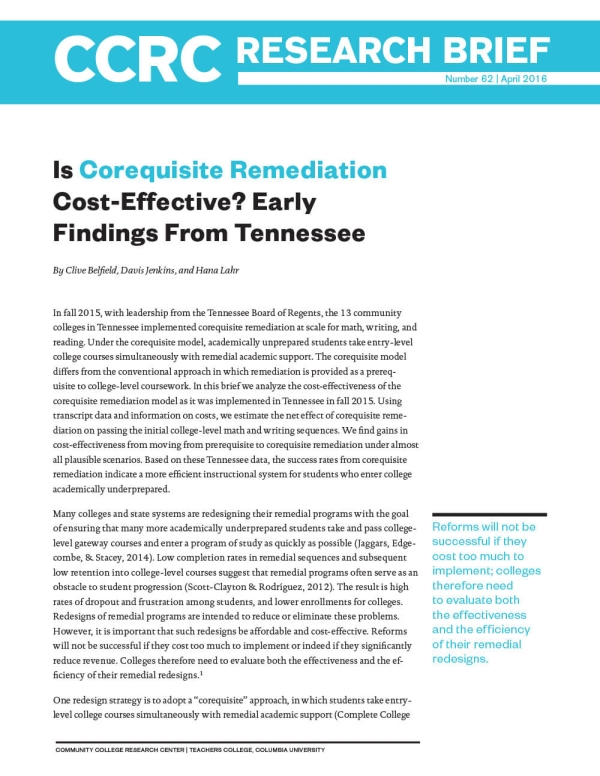Computer-Mediated Developmental Math Courses in Tennessee High Schools and Community Colleges: An Exploration of the Consequences of Institutional Context

Using site visit data from three community colleges and four high schools, this paper explores how the institutional context of the high schools compared with that of the colleges in ways that may have affected the implementation and efficacy of computer-mediated mathematics.
Performance Funding for Higher Education

This book is the culmination of a three-year study of performance funding in Indiana, Ohio, and Tennessee. Based on interviews with state officials and staff at 18 public institutions, the book delves into the policy implications of performance funding, which ties state financial support of colleges and universities to institutional performance.
Momentum: The Academic and Economic Value of a 15-Credit First-Semester Course Load for College Students in Tennessee

Using student-level data from the Tennessee Board of Regents, this paper explores the academic and economic consequences of taking higher or lower credit loads in the first semester and first year of college.
Looking Inside the Black Box of Performance Funding for Higher Education: Policy Instruments, Organizational Obstacles, and Intended and Unintended Impacts

In addition to drawing on the existing body of research on performance funding, this journal article reports data from a study of the implementation of performance funding in three leading states (Indiana, Ohio, and Tennessee) and its impacts on three universities and three community colleges in each state.
Is Corequisite Remediation Cost-Effective? Early Findings From Tennessee

This brief examines the corequisite remediation model as it was implemented in Tennessee community colleges in fall 2015 and finds that it is more cost-effective than the prerequisite remediation model the colleges formerly used.
